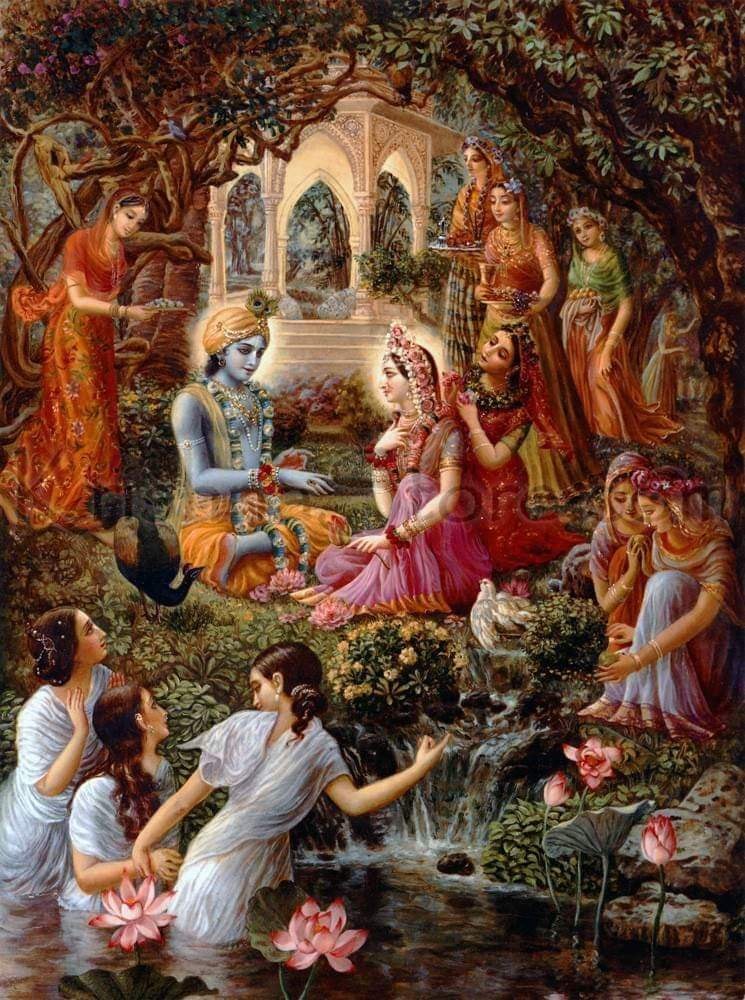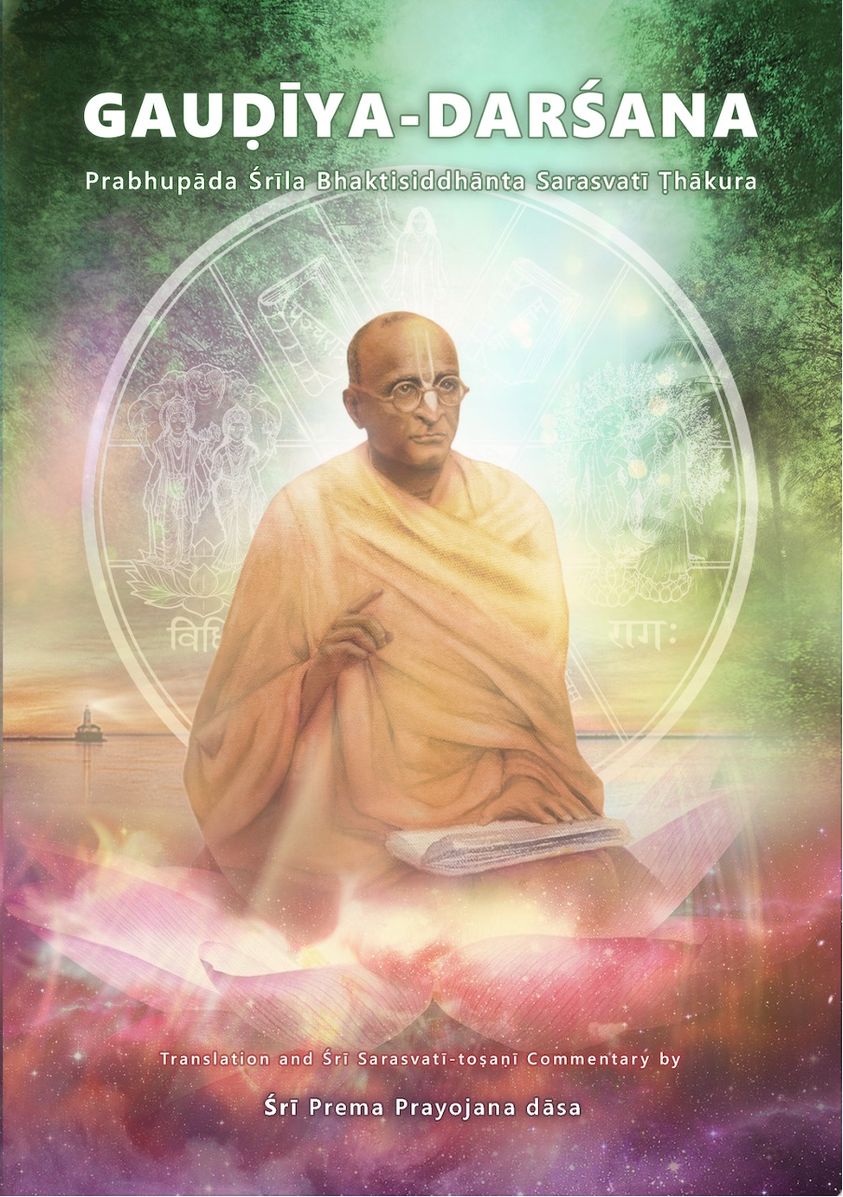
The Bhagavad Gita was spoken on a battlefield
Bhagavad Gita Chapter 2 Text 16 Excerpt from Srila Bhaktivedanta Narayana Maharajas purport
Of the temporary, such as winter or summer, there is no permanent existence, and of the eternal, such as the soul, there is no destruction. Those who know the Truth have reached this conclusion by deliberating on what is temporary and what is eternal.
PURPORT
These words are spoken for persons who cannot yet discriminate. According to the statement, asango hy ayam purushah, the soul, or jivatma, does not have a relationship with either the subtle or the gross body, or with the characteristics of the body such as lamentation and delusion.
This is because these relationships are imagined only, due to ignorance. For this reason, the present verse beginning with the word nasatah is spoken. The word asatah means that due to the non-spiritual nature of lamentation and delusion, which appear to be in both the jiva (who is spiritual by nature) and his shelter, the gross body, they have no real existence. Similarly, the word satah means that the jivatma, whose nature is eternal (sat), is never destroyed. In this way the fundamental principle of sat (eternality) and asat (temporariness) is understood. “Thus you and Bhishma are eternal. Bodily identification, lamentation and delusion do not exist in regard to the imperishable soul, so how can Bhishma and the others be annihilated? Knowing that, why should you grieve for them?”
Bhagavad Gita Chapter 2 Text 16 Excerpt from Srila Bhaktivedanta Swamis purport
Those who are seers of the truth have concluded that of the nonexistent [the material body] there is no endurance and of the eternal [the soul] there is no change. This they have concluded by studying the nature of both.
PURPORT
There is no endurance of the changing body. That the body is changing every moment by the actions and reactions of the different cells is admitted by modern medical science; and thus growth and old age are taking place in the body. But the spirit soul exists permanently, remaining the same despite all changes of the body and the mind. That is the difference between matter and spirit. By nature, the body is ever changing, and the soul is eternal. This conclusion is established by all classes of seers of the truth, both impersonalist and personalist. In the Viṣṇu Purāṇa (2.12.38) it is stated that Viṣṇu and His abodes all have self-illuminated spiritual existence (jyotīḿṣi viṣṇur bhuvanāni viṣṇuḥ). The words existent and nonexistent refer only to spirit and matter. That is the version of all seers of truth.
This is the beginning of the instruction by the Lord to the living entities who are bewildered by the influence of ignorance. Removal of ignorance involves the re-establishment of the eternal relationship between the worshiper and the worship able and the consequent understanding of the difference between the part-and-parcel living entities and the Supreme Personality of Godhead. One can understand the nature of the Supreme by thorough study of oneself, the difference between oneself and the Supreme being understood as the relationship between the part and the whole. In the Vedānta-sūtras, as well as in the Śrīmad-Bhāgavatam, the Supreme has been accepted as the origin of all emanations. Such emanations are experienced by superior and inferior natural sequences. The living entities belong to the superior nature, as it will be revealed in the Seventh Chapter. Although there is no difference between the energy and the energetic, the energetic is accepted as the Supreme, and energy or nature is accepted as the subordinate. The living entities, therefore, are always subordinate to the Supreme Lord, as in the case of the master and the servant, or the teacher and the taught. Such clear knowledge is impossible to understand under the spell of ignorance, and to drive away such ignorance the Lord teaches the Bhagavad-gītā for the enlightenment of all living entities for all time.
Please send us your questions, which will be answered in the "Answers section" Go there now
Send your questions to devarsi@harekrishnasociety.com
To read philosophical articles go here

 Posted in
Posted in 







